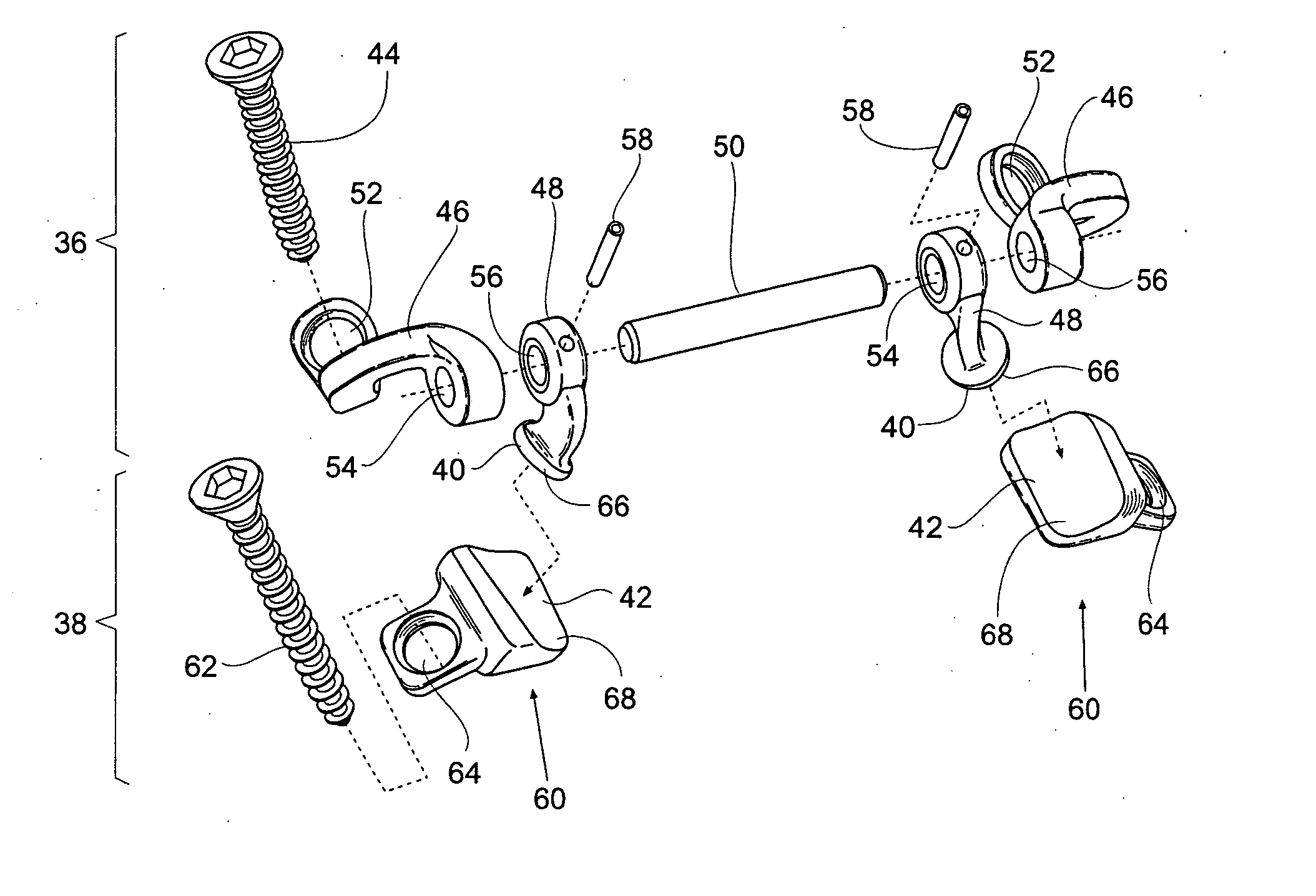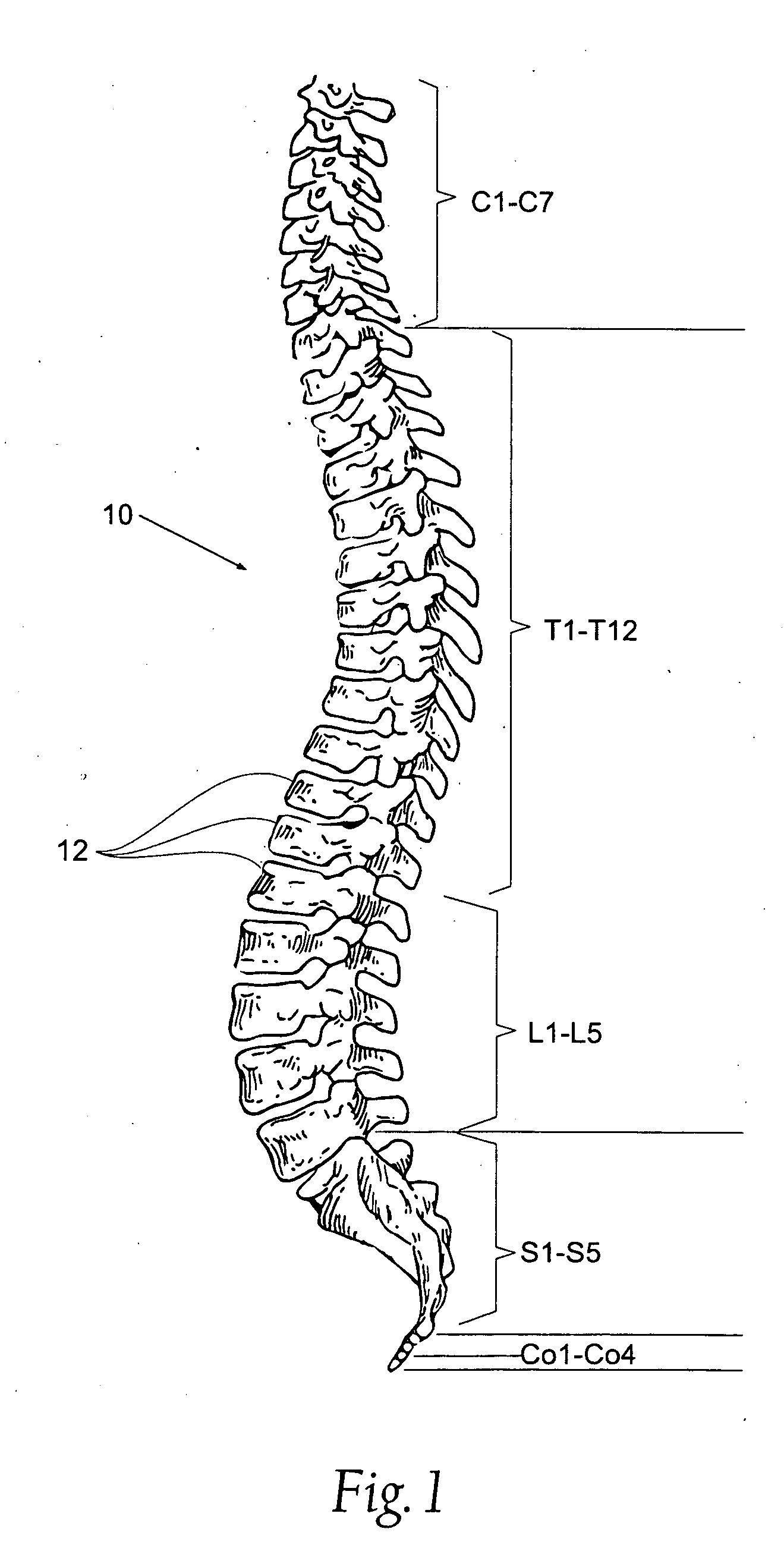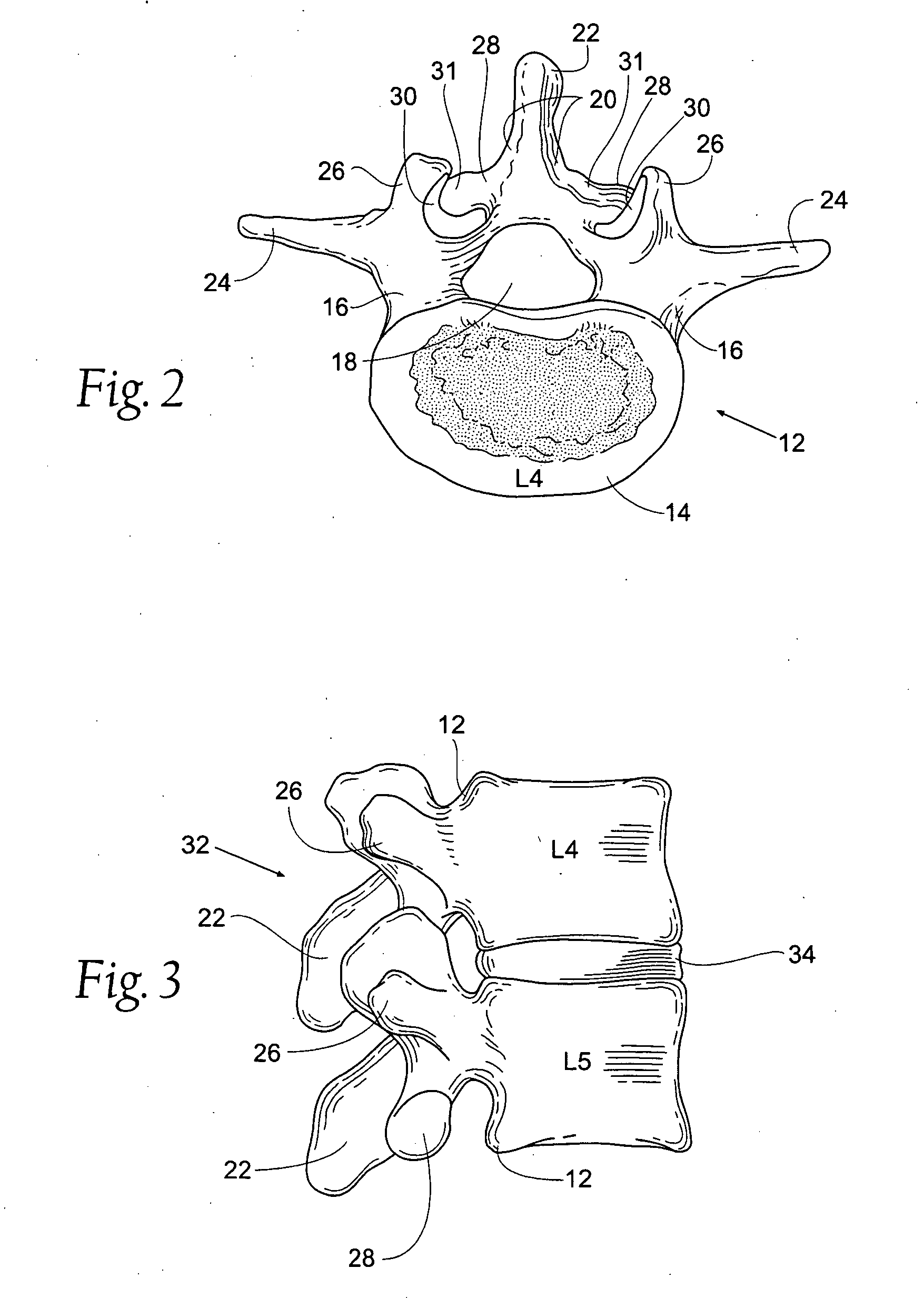Prostheses, systems and methods for replacement of natural facet joints with artificial facet joint surfaces
a technology of facet joints and prostheses, applied in the field of prostheses for treating various types of spinal pathologies, can solve the problems of affecting the function of the prosthesis, affecting the quality of life of the patient, etc., to achieve secure and durable attachment to cortical and/or cancellous bone, secure and stabilize the prosthesis, and improve the effect of quality of li
- Summary
- Abstract
- Description
- Claims
- Application Information
AI Technical Summary
Benefits of technology
Problems solved by technology
Method used
Image
Examples
first alternative embodiment
II. First Alternative Embodiment
1. Cephalad Prosthesis
[0107]FIGS. 12 and 13 show alternative embodiments of a cephalad 70 and a caudal 72 vertebral prosthesis. Similar to the previous embodiment, the cephalad prosthesis 70 is a modular unit comprising left and right fixation elements 74, left and right supports 76, left and right arms 78, left and right artificial facet joint structures 79 for the superior facet of a natural facet joint 32, and a transverse brace 80 that allows assembly of the components in situ. Components are mounted in situ on the fixation elements 74 that are secured to the pedicle 16 in an orientation that provides secure fixation to bone.
[0108] The left and right fixation elements 74 are fixed to the left and right pedicles 16 respectively, in a position that best assures their fixation to cortical and / or cancellous bone. In the illustrated embodiment, the fixation elements 74 take the form of pedicle screws or nails. The fixation elements 74 are adapted to...
second alternative embodiment
III. Second Alternative Embodiment
[0124]FIGS. 21-23 illustrate a cephalad prosthesis 138 and a caudal prosthesis 140 similar to the embodiments shown in FIGS. 12 and 13, and like parts will be given like reference numerals.
[0125] Each arm 78 of the cephalad prosthesis 138 includes a slot 142 for receiving a brace 144. In the illustrated embodiment, the brace 144 takes the form of a curvilinear transverse rod. The brace 144 is secured to the arms 78 by fixation elements 146.
[0126] Similar to the cephalad prosthesis 138, each support 120 of the caudal prosthesis 140 has a slot 148 for receiving a brace 150. In the illustrated embodiment, the brace 150 takes the form of a curvilinear transverse rod. The brace 150 is secured to the supports 120 by fixation elements 152.
[0127] The prostheses 138 and 140 are secured in the vertebrae by surgical procedure, as previously described (see also FIGS. 14-18).
third alternative embodiment
IV. Third Alternative Embodiment
[0128]FIGS. 24-28 illustrate another embodiment of a cephalad prosthesis 154 and a caudal prosthesis 156.
1. Cephalad Prosthesis
[0129] Similar to the previous embodiments, the cephalad prosthesis 154 is a modular unit comprising a fixation element 158, a support 160, and an arm 162 carrying an artificial facet joint structure 176 that allow assembly of the components in situ. A pair of fixation elements 158 (right and left) are desirably provided and sized and configured to be are secured to the right and left pedicles 16 in an orientation that provides secure fixation to bone. Components are mounted in situ on the fixation elements 158 that are secured to the pedicle 16 in an orientation that provides secure fixation to bone.
[0130] In the illustrated embodiment, each fixation element 158 takes the form of a sleeve 164 and a pedicle screw 166. The sleeve 164 is sized and configured for insertion into a bore 168 that has been reamed into the pedicle...
PUM
| Property | Measurement | Unit |
|---|---|---|
| Length | aaaaa | aaaaa |
| Width | aaaaa | aaaaa |
| Symmetric field theory | aaaaa | aaaaa |
Abstract
Description
Claims
Application Information
 Login to View More
Login to View More - R&D
- Intellectual Property
- Life Sciences
- Materials
- Tech Scout
- Unparalleled Data Quality
- Higher Quality Content
- 60% Fewer Hallucinations
Browse by: Latest US Patents, China's latest patents, Technical Efficacy Thesaurus, Application Domain, Technology Topic, Popular Technical Reports.
© 2025 PatSnap. All rights reserved.Legal|Privacy policy|Modern Slavery Act Transparency Statement|Sitemap|About US| Contact US: help@patsnap.com



